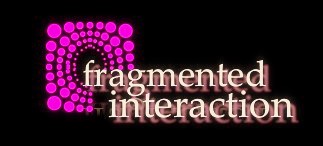In attempting to write a script for my first (very) short film, as part of the if:book project The Museum of the Future of the History of the Book I found myself imagining the language of the future. And now I'm hooked... I have been looking into the works of Scott Westerfield who "likes the idea of language so much that, as a child, he learned Braille.."
On Notes From The Slush Pile it goes on to report about Westerfield, "Language is the reason why Scott writes young adult (YA) novels. “When you are a teenager you are still in the act of acquiring language ,” he says. “One of the reasons I really like YA is that teenagers are more interested in voice than adults.”
Teenagers, he says, write more poetry per capita. They play more word games. They memorise more song lyrics. They like to spell things creatively. And a high percentage are in fact learning a language in school.
Allan Metcalf wrote Predicting New Words: The Secrets of Their Success, chronicling the origins of a fascinating list of words and phrases. In the process he developed the FUDGE factor – a way to measure the potential success of a word. Scott subverts the FUDGE paradigm into a means for authors to create convincing slang for YA readers.
F stands for Frequency of use. “You have to use something more than once. Use it in context and then define it three paragraphs later.”
U is for unobtrusiveness. “It might look familiar, but it doesn’t stand out. It’s so unobtrusive that when you see it the Microsoft spell checker in the brain takes less time to reload.”
D is for diversity of use and situations. And G is for Generate other forms and meanings. “Don’t just use something one way, use it as a verb or noun. Meanings will start to support each other in the text. That’s the way language works.” Eg. “Did you surge last week?” “He was a new surge.” “Surgeless” “Resurgent”.
E is for the endurance of the concept. Can you make it stick? At the end of the day, says Scott, “Slang is like reading Shakespeare – you eventually figure out what they are saying.”
So now I'm thinking it would be fun to work with groups of young people to workshop some ideas about our language as we know it. It's maybe not so thought-provoking that our 'modern day' English will be considered as verbose and 'wordy' as that of Shakespeare.. innit...??
Subscribe to:
Post Comments (Atom)


No comments:
Post a Comment